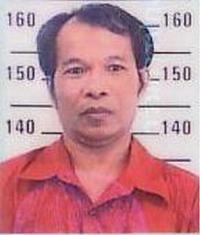Issues on interaction of legal courts, translators and lawyers in Thailand Thread poster: Soonthon LUPKITARO(Ph.D.)
|
|---|
I intended to write in a country specific forum for Thailand but I cannot find that category. The moderator may move this topic if you find relevant.
Translators know that Thailand has no specific education or training on translation for legal settings. Many translators can work for some years and compile evidences to register to the Minister of Justice to be a certified translator for this specific mission.
I translated many of legal documents: contracts, court judgme... See more I intended to write in a country specific forum for Thailand but I cannot find that category. The moderator may move this topic if you find relevant.
Translators know that Thailand has no specific education or training on translation for legal settings. Many translators can work for some years and compile evidences to register to the Minister of Justice to be a certified translator for this specific mission.
I translated many of legal documents: contracts, court judgments, warrants, summons, indictments, testimonies, affidavits, declarations, statements, verdicts etc. I found that conveying of exact meanings into another language is fully sufficient as a mission in legal translation when I have sufficient background and education on specific laws, codes or decrees. I become confident to proceed the legal procedures by myself in many instances e.g. as a plaintiff, as a defendant, as an interpleader.
I recently met with many environments that I had to speak directly with judges and juries in Thailand to declare my facts and to lead to legal conclusions in a number of cases. In special courts e.g. courts for tax, labor, intelligent property, international trade, anti-corruption, I did not find any burden to convey statements at all. But in recent events I have met, they became significantly different. The Thai courts tended to avoid listening to my facts who has neither lawyer license nor prolonged practical experience in courts. They preferred seeking explanation or statements from my lawyers or the opponent’s lawyers who actually were not direct persons in charge of each incidence. The courts say that statements of laymen are not compatible with legal settings e.g. relevant laws or bills to justify the case. In one latest case I had conflict with a translation agency, the court demanded the defendant’s lawyers and law firm executives to declare facts informally to the judge before a formal investigation of the procedures. The lawyers and law firm executives were actually never acknowledged the conflicts until the lawsuit. I was surprised why the court wanted to listened to words to the secondary witnesses instead of the real counterparts.
Yesterday I spend so many hours with my lawyer in a Thai court. We discussed extensively about movements of the judges (jury system is under development in this country). I learned that as a translator or an interpreter, we not only master techniques of translation but also classic ways of practices of lawyers and judges, as well as possess a lawyer license OR our written or oral translation may not be listened effectively in the court procedures. Defects in these processes will badly affect the outcomes of the legal lawsuits or verdicts.
The legal courts of Thailand are established to serve one of the three pillars of democratic administration: legislation, governing and jurisdiction. Distance of these institutions to citizens and people in general is quite remote: No one but legal personnel approaches these organizations to enjoy services or judgments intimately. Name of the King is conventionally quoted on any commands or documents issued by courts. Courts are also extremely protected against any harm or breach or violation that may affect justice. But judges exploit this protection to set themselves away from the people in general, including us the translators.
I want to have ideas from other countries, in particular from translators with lawyer licenses and court practices, to get wisdom on how translation services can serve the clients and the system of justice efficiently, and courts can listen to words of non-legal personnel or not. I really guess that courts in most industrial nations are more open to approach of common laymen. Or am I still misunderstanding the real authority of this jurisdiction paradigm in any common civilized nations? And are legal courts in specific domains where only legal personnel, excluding university educated people and others, should have contact with?
Soonthon Lupkitaro Ph.D. ▲ Collapse
| | | | To report site rules violations or get help, contact a site moderator: You can also contact site staff by submitting a support request » Issues on interaction of legal courts, translators and lawyers in Thailand | Anycount & Translation Office 3000 | Translation Office 3000
Translation Office 3000 is an advanced accounting tool for freelance translators and small agencies. TO3000 easily and seamlessly integrates with the business life of professional freelance translators.
More info » |
| | Trados Studio 2022 Freelance | The leading translation software used by over 270,000 translators.
Designed with your feedback in mind, Trados Studio 2022 delivers an unrivalled, powerful desktop
and cloud solution, empowering you to work in the most efficient and cost-effective way.
More info » |
|
| | | | X Sign in to your ProZ.com account... | | | | | |




